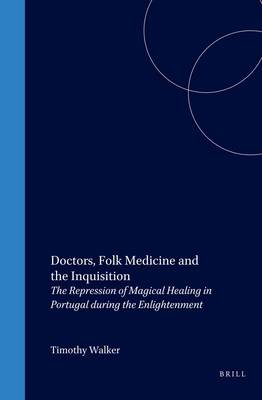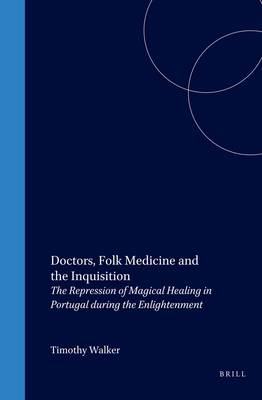
- Afhalen na 1 uur in een winkel met voorraad
- Gratis thuislevering in België vanaf € 30
- Ruim aanbod met 7 miljoen producten
- Afhalen na 1 uur in een winkel met voorraad
- Gratis thuislevering in België vanaf € 30
- Ruim aanbod met 7 miljoen producten
Doctors, Folk Medicine and the Inquisition
The Repression of Magical Healing in Portugal During the Enlightenment
Timothy Walker
€ 380,45
+ 760 punten
Omschrijving
Inquisition trials for sorcery and witchcraft in Portugal reached a late crescindo (1715 to 1755). This study of those events focuses on the Inquisition's role in prosecuting and discrediting popular healers (called saludadores or curandeiros), who were charged with practicing magical crimes. Significantly, these trials coincide with the entrance of university-trained physicians and surgeons into the paid ranks of the Portuguese Inquisition in unprecedented numbers. State-licensed medical practitioners, motivated by professional competition combined with a desire to promote rationalized "scientific" medicine, used their positions within the Holy Office to initiate trials against purveyors of superstitious folk remedies. The repression of folk healing reveals a conflict between learned medical culture and popular healing culture in Enlightenment-era Portugal. In this rare instance, the Inquisition functioned as an instrument of progressive social change.
Specificaties
Betrokkenen
- Auteur(s):
- Uitgeverij:
Inhoud
- Aantal bladzijden:
- 433
- Taal:
- Engels
- Reeks:
- Reeksnummer:
- nr. 23
Eigenschappen
- Productcode (EAN):
- 9789004143456
- Verschijningsdatum:
- 15/04/2005
- Uitvoering:
- Hardcover
- Formaat:
- Genaaid
- Afmetingen:
- 162 mm x 243 mm
- Gewicht:
- 938 g

Alleen bij Standaard Boekhandel
+ 760 punten op je klantenkaart van Standaard Boekhandel
Beoordelingen
We publiceren alleen reviews die voldoen aan de voorwaarden voor reviews. Bekijk onze voorwaarden voor reviews.









